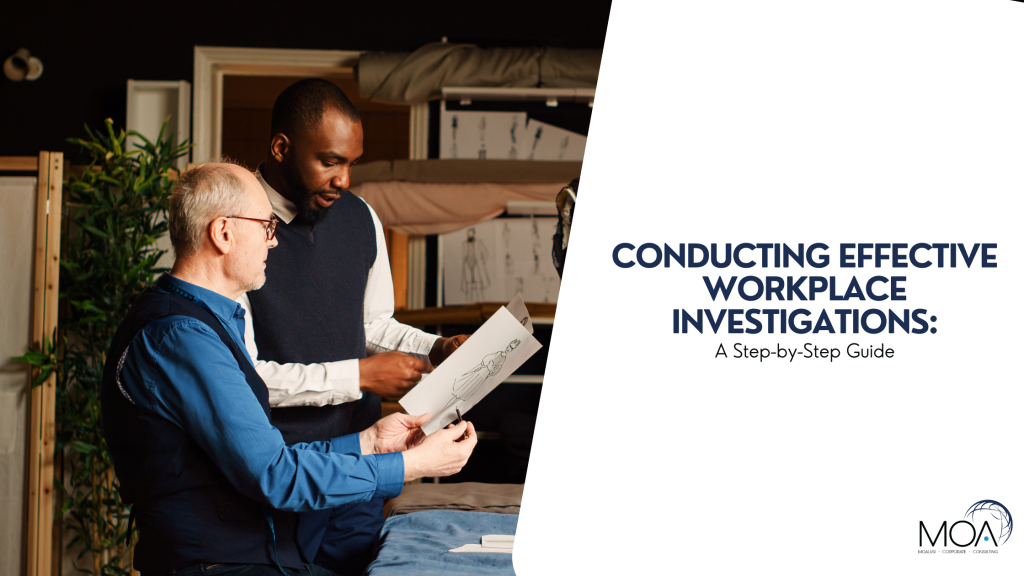Introduction
Workplace investigations play a crucial role in maintaining a safe, fair, and productive work environment. However, conducting investigations can be a challenging task that requires careful planning, attention to detail, and adherence to best practices. In this blog post, we\’ll explore the key steps involved in conducting effective workplace investigations and provide tips for HR professionals to navigate these situations successfully.
Preparation and Planning:
- Discuss the importance of thorough preparation before initiating an investigation. This includes identifying the scope and objectives of the investigation, determining the appropriate investigative team or individual, and establishing a timeline for completion.
- Provide guidance on gathering relevant documentation, such as incident reports, witness statements, and personnel records, to support the investigation process.
Interviewing Witnesses and Parties Involved:
- Offer tips for conducting effective interviews with witnesses and parties involved in the investigation. Emphasize the importance of creating a comfortable and confidential environment for interviews, actively listening to all parties\’ perspectives, and asking open-ended questions to gather relevant information.
- Discuss strategies for handling difficult or sensitive situations during interviews, such as managing emotions and maintaining neutrality and objectivity.
Analyzing Evidence and Drawing Conclusions:
- Explore the process of analyzing evidence collected during the investigation and drawing conclusions based on the available facts. Highlight the importance of evaluating credibility, consistency, and corroboration when assessing witness testimony and other evidence.
- Provide guidance on documenting findings and reaching conclusions that are fair, impartial, and supported by the evidence.
Maintaining Confidentiality and Privacy:
- Stress the importance of maintaining confidentiality and privacy throughout the investigation process to protect the integrity of the investigation and the privacy rights of individuals involved.
- Offer tips for securely storing and handling sensitive information, such as limiting access to investigation documents and using password-protected systems for electronic data.
Communication and Follow-Up:
- Discuss the importance of clear and timely communication with all parties involved in the investigation, including providing updates on the progress of the investigation and sharing the outcome and any resulting actions or decisions.
- Offer guidance on addressing any follow-up actions that may be necessary after the investigation, such as implementing corrective measures, providing support to affected parties, and monitoring compliance with any disciplinary actions or remedial measures.
Conclusion:
Conducting effective workplace investigations requires a careful balance of diligence, fairness, and professionalism. By following the steps outlined in this blog post and adhering to best practices, HR professionals can conduct thorough and impartial investigations that promote accountability, fairness, and trust in the workplace.

